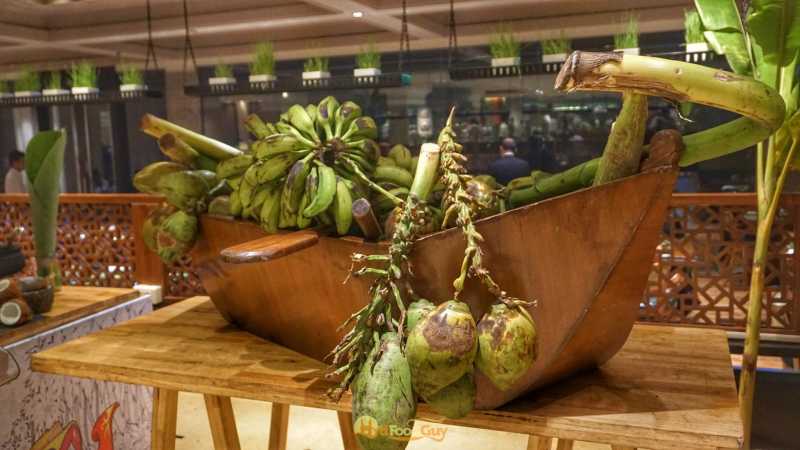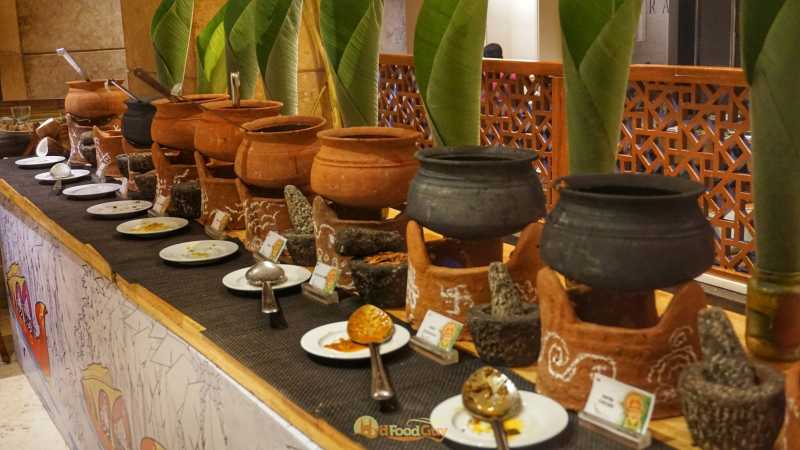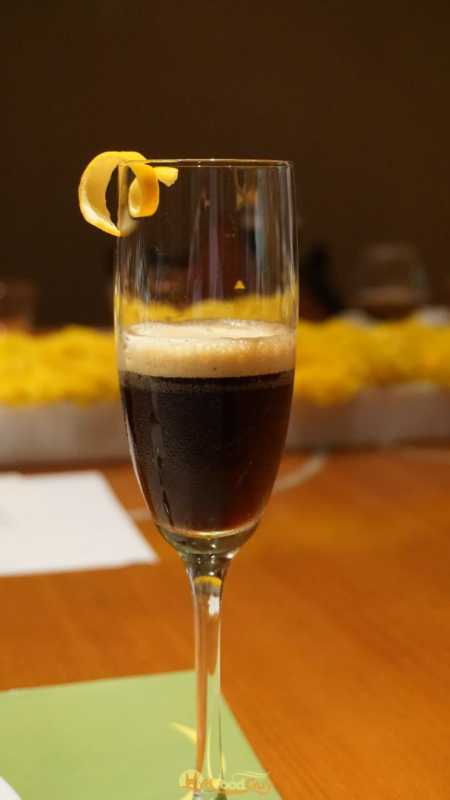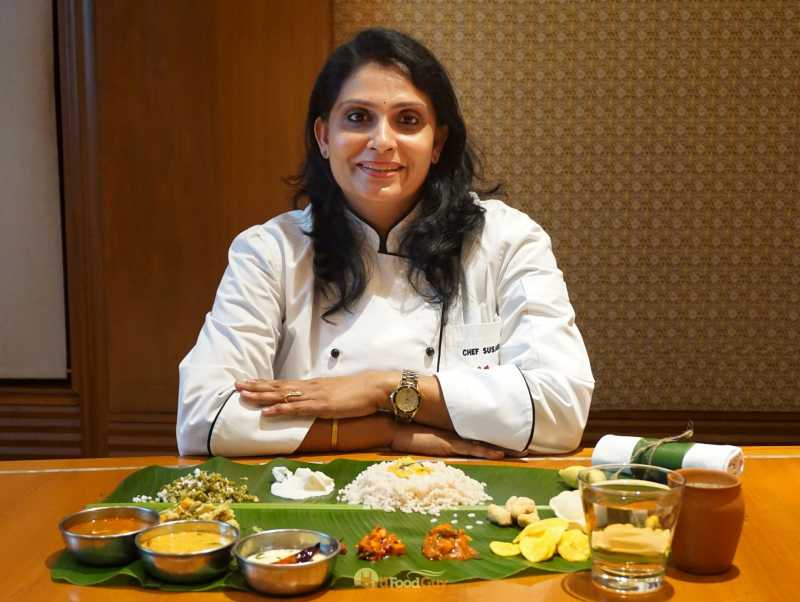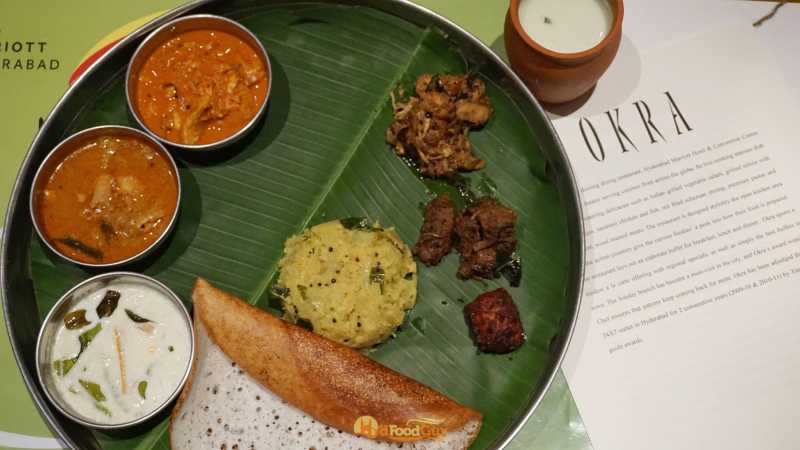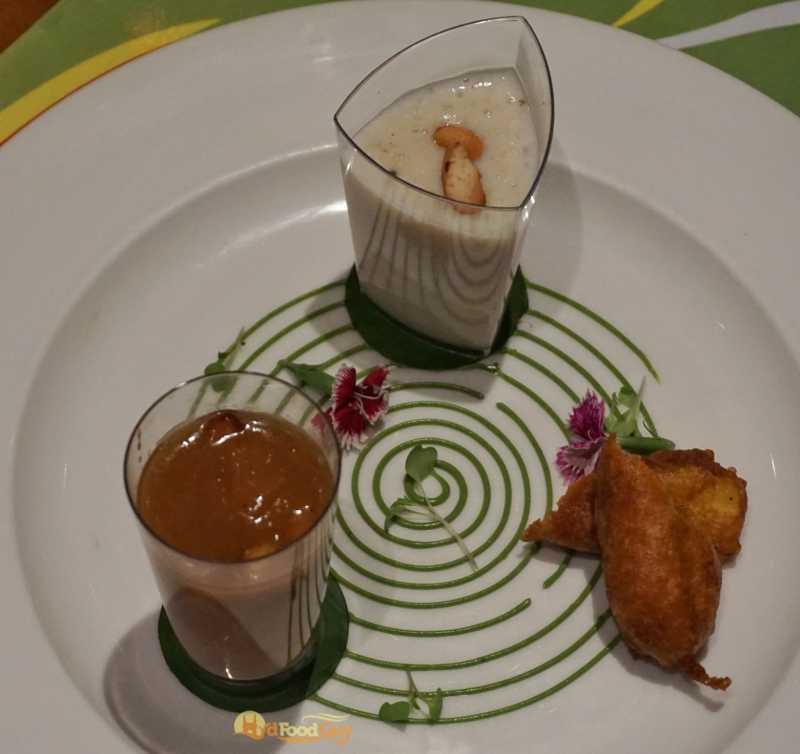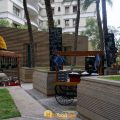The exquisite spices of Kerala made it a hotbed of commercial activity since the ancient times. Vasco da Gama docked at Calicut and became the first European to reach India by sea in 1498. Even though the return voyage proved to be a bit of a disaster, the spices he carried were more than their weight in gold. Middle Eastern traders, though, had been frequenting Kerala since much earlier. Records of spice exports from this coastal state date all the way back to 3000 BC. The continuous influx of traders has left an indelible mark on the demographics and culture of Kerala.
Islam reached Kerala centuries before the Muslim invasions, and lead to the formation of the Mapilla or Moplah community. Last year, Begum Abida Rasheed, who is affectionately known as the Moplah Genie, visited Hyderabad to offer the city a taste of the distinctive Moplah delicacies like Mutton Ishtew, Pathir, and Mutta Mala.
Christianity arrived in Kerala with the arrival of St. Thomas, one of the twelve Apostles, in 52 AD. The history of the Christian community in Kerala is rich and storied. This community, which is known by various names including Saint Thomas Christians, Syrian Christians, and Nasrani, has evolved a distinctive culture that’s influenced by both Jewish and Hindu traditions. The culinary traditions of this culture have been famously captured by Lathika George in her book ‘The Suriani Kitchen’.
Through the third week of September, Marriott Hyderabad is presenting many quintessential dishes from the Syrian Christian community at the Okra buffet. Helming the kitchen is Home Chef Susan Arun. I was invited to a tasting session where Mrs. Susan Arun regaled us with her tales. She is a brilliant storyteller and an even better chef. She learnt the art of cooking from her mother who was revered by friends and family for her brilliance at the kitchen. “Friends would often request recipes from my mom. She’d happily share them but she’d always fail to mention a key ingredient or two”, recalled Mrs. Arun.
The ‘Suriani Kitchen’ festival comes close on the heels of Onam celebrations. Onam is one of the few Indian festivals where food is an integral element. The final day of celebrations is marked by the Onam Sadya, a vegetarian feast laid out on a banana leaf. The Syrian Christians are known for their love of non-vegetarian fare, but the Sadya is celebrated across communities and castes in Kerala, and the food on offer is very similar. The tasting session devised for us featured two distinct acts. A vegetarian feast resembling a traditional Sadya, and a non-vegetarian thali with Nasrani specialities.
Banana and Coconut are two particularly prominent ingredients in Malayali cuisine. Even Chef Susan was surprised by how many coconuts she needed for every meal. She had requested for thirty coconuts for the first day, but ended up using up all of it halfway through her cook.
Banana was featured on the Sadya as Upperi (banana chips), Sharkara Varatti (banana chips coated with jaggery), and Chenna Kadala Kootu Curry (Yam and raw banana with black chickpea) as well as a piece of the fruit (Pazham) itself.
Coconut makes it’s appearence in Malayali food in various avatars. Coconut oil is typically used to cook most dishes. However, Marriott is using refined oil for the preparations. Coconut Oil can be a bit of a challenge to get used to it if you’re tasting it for the first time, and Chef Susan prefers using refined oil for her recipes. Coconut is also the element that ties together the medley of vegetables in Aviyal, the focal point of any Sadya. Aviyal literally means ‘to be cooked’, and the ingredients can include a diverse mix of vegetables available in the household. Besides the mythological underpinnings, Sadya is also a celebration of harvest, and traditionally households would use vegetables grown in their farms and backyards to prepare the Onam Sadya. How Aviyal originated is up for debate. Stories variously attribute it to everyone from Bhim from the epic Mahabharata to an enterprising cook from Travancore. Irrespective of how it originated, it’s a dish that is deceptively simple yet delicious and healthy. Coconut also shows up in Olan (ash gourd and red beans curry with coconut milk) and Vellarikka Pachadi (cucumber, yoghurt, and grated coconut mix). In fact, grated coconut is usually found even in the Moong Daal (Parippu).
A Sadya always comes with an assortment of pickles. Chef Susan served us Inji Puli (ginger, tamarind, and jaggery pickle), Kadu Manga (mango pickle), and Naranga Achar (lemon pickle). Accompanying the food was a spicy shallot and ginger infused butter milk and water infused with the bark of Pathimugam.
The Syrian Christians love non-vegetarian. From Meen Moilee to Duck Curries and Beef Ularthiathu, this is a cuisine that has some stunning dishes. We were served a thali featuring two staples – Appam and Kappa. But, before that, we were served a glass of Toddy. A toddy is a local Palm Wine that’s popular across the state. The bar at Marriott isn’t serving the real thing, which is best enjoyed fresh. Instead they’ve fashioned a cocktail of Tequilla, Tender Coconut, Coconut Milk, and Pineapple juice that looked like a Toddy.
Appam is the signature dish of the Nasranis, which finds mentions in several ancient Tamil Sangam poems. It comes in over a dozen variations, but the most common form is that of a circular pancake of fermented batter and coconut milk with a spongy centre and slightly browned edges. It is traditionally paired with a sweetish stew. Chef Susan served us a couple of them – a mixed-vegetable stew and a chicken stew. The Mixed Veg stew stayed true to the traditional recipe, while the Chicken Stew was served with a bit more spices, the way Chef prefers it.
Kappa is a spiced Tapioca and Coconut mash that’s commonly mixed with a Fish curry (we were served Meen Vevichathu). Kappa is a starchy dish that used to be a poor man’s alternative to rice, but is now popular as a breakfast or a quick meal. The other dishes on offer were Kerala style Pepper Chicken, Beef Roast, and Fish Pickle. The Fish Pickle was brilliant and almost everyone on the table ended up requesting extra helpings. A well-done Kerala Style Beef Roast is always spectacular and this one lived up to the expectations.
We wrapped up our meal with a troika of desserts – Pazham Pori (Banana Fry), Pal Payasam (Rice Pudding), and Ada Pradaman (Rice flake and Jaggery Pudding). Chef Ratheesh Unni Nair exhibited a bit of his characteristic flair in the plating of the dish. Personally, I’m not a big fan of Banana Fry – there’s something about the texture of a fried banana that I don’t quite enjoy. But, I absolutely loved the Ada Pradaman. To final note was provided by a surprise from the bar at Altitude – an alcohol spiked Kerala Black Coffee.
Both the platters served by Chef Susan were memorable and delicious. It’s food with a rich history and heritage that had been prepared with warmth and care. Unfortunately, there’s no TDH (Table d’hôte) menu at Okra. The Okra buffet has been augmented with an additional station dedicated to Syrian Christian food. There’ll be around a dozen dishes on offer every day with a rotating menu. Buffet allows the risk averse to come and taste a new cuisine knowing that there’s the safety net of the usual Okra spread. Yet, at the same time, it doesn’t quite offer the focussed experience of a curated meal with steaming food coming fresh from the kitchen. Nevertheless, Marriott deserves props for both showcasing a regional cuisine that rarely finds a spot in restaurants and for doing it with an immensely talented home chef. The Suriani Kitchen promotion will continue until 17th September (dinners only). It’s Rs. 1600 (taxes extra) without alcohol and Rs. 2350 (taxes extra) if you wish to include liquor.

